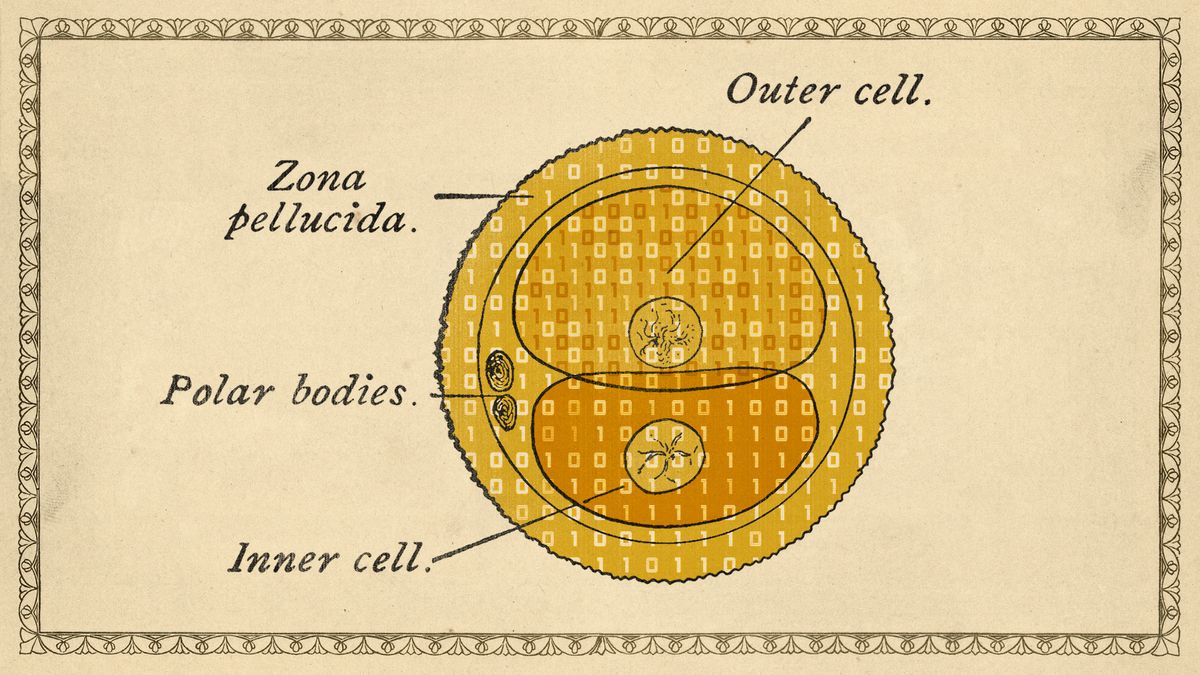Unlocking Life: The Quest to Engineer an AI-Powered Virtual Cell
In the realm of scientific innovation, the fusion of artificial intelligence (AI) and biology represents one of the most exciting frontiers. Researchers are embarking on a groundbreaking initiative to develop an AI-powered virtual cell, a project that promises to revolutionize our understanding of life itself. This ambitious endeavor not only holds the potential to advance biotechnological applications but also raises profound questions about the very essence of life. What does it mean to create a virtual cell, and how might this impact our approach to medicine and biology? Let’s delve into these questions and explore the implications of this cutting-edge research.
The Concept of an AI-Powered Virtual Cell
At its core, the quest to engineer an AI-powered virtual cell seeks to create an intricate digital model that simulates the functions of a biological cell. By harnessing sophisticated algorithms and vast datasets, scientists aim to replicate the cellular processes that govern life. This virtual cell would not only mimic the behavior of real cells but also allow researchers to manipulate variables and observe outcomes in a controlled environment.
The AI component is crucial here. Traditional biological models often rely on static representations, which can limit our understanding of dynamic processes. With AI, researchers can introduce machine learning techniques that enable the virtual cell to learn from simulations, adapt to new information, and even predict cellular responses. Such capabilities could dramatically enhance our understanding of biological systems.
Why Create a Virtual Cell?
The motivation behind creating an AI-powered virtual cell is manifold:
- Accelerating Research: By simulating cellular processes, researchers can expedite experiments that would otherwise take years in a laboratory setting.
- Drug Discovery: This technology could revolutionize drug development by allowing scientists to test how new compounds interact with cells without the immediate need for animal testing.
- Personalized Medicine: Virtual cells could be tailored to individual patients, enabling personalized treatment plans based on their unique cellular responses.
- Education and Training: The virtual cell could serve as a powerful educational tool, helping students and professionals visualize complex biological processes.
Challenges in Developing an AI-Powered Virtual Cell
While the potential benefits are immense, the journey toward engineering an AI-powered virtual cell is fraught with challenges. Key hurdles include:
- Data Collection: High-quality, comprehensive data on cellular processes is essential for accurate modeling. Gathering this data can be difficult, especially for less understood cellular functions.
- Complexity of Biological Systems: Biological cells are incredibly complex, with numerous interacting components. Replicating this complexity in a virtual environment requires advanced algorithms and computational power.
- Ethical Considerations: The creation of virtual life raises ethical questions about the implications of manipulating biological systems, whether real or simulated.
AI’s Role in the Virtual Cell
The integration of AI into the development of a virtual cell is what sets this initiative apart. AI offers tools that can analyze vast datasets, identify patterns, and generate predictive models. Here’s how AI plays a pivotal role:
- Machine Learning: By employing machine learning algorithms, researchers can create models that improve over time, learning from both successes and failures in simulations.
- Predictive Analytics: AI can help predict how cells will behave under various conditions, which is invaluable in research and therapeutic development.
- Automation: AI can automate routine tasks, allowing scientists to focus on more complex aspects of research and development.
Implications for Medicine and Biotechnology
The implications of successfully engineering an AI-powered virtual cell are vast, particularly within the fields of medicine and biotechnology. Here are some potential impacts:
1. Revolutionizing Drug Development
One of the most promising applications of a virtual cell is in drug development. By simulating how potential drugs interact with cellular components, researchers could significantly reduce the time and cost associated with bringing new therapeutics to market. Early-stage testing in a virtual environment could identify promising candidates for further development, ultimately leading to more effective treatments with fewer side effects.
2. Advancing Genetic Research
The virtual cell could also enhance our understanding of genetic diseases. By simulating the effects of genetic mutations within the virtual environment, researchers could observe how these changes impact cellular function. This could lead to breakthroughs in gene therapy, allowing for more precise interventions tailored to individual genetic profiles.
3. Environmental and Agricultural Applications
Beyond human health, AI-powered virtual cells could also contribute to environmental and agricultural advancements. By modeling how plants and microorganisms respond to various environmental stressors, researchers could develop more resilient crops and sustainable agricultural practices.
The Philosophical Considerations
As we stand on the brink of creating an AI-powered virtual cell, it’s essential to consider the philosophical implications of such advancements. The project raises fundamental questions about the nature of life:
- What defines life? If we can replicate cellular functions in a virtual environment, does that challenge our understanding of what it means to be alive?
- Ethical Boundaries: Where do we draw the line in manipulating biological systems, whether real or virtual? The potential for misuse or unintended consequences looms large.
- The Role of AI: As AI becomes more integrated into biological research, what responsibilities do we have to ensure its ethical use? How do we ensure that AI serves humanity’s best interests?
Conclusion
The quest to engineer an AI-powered virtual cell is not just a scientific endeavor; it’s a profound exploration of life, technology, and ethics. As researchers push the boundaries of what is possible, the implications for medicine, biotechnology, and our understanding of life itself are monumental. The challenges are significant, but the potential rewards could reshape our world in ways we are just beginning to imagine. As we unlock the secrets of life through AI, we are not only advancing science but also embarking on a journey that could alter our very perception of existence.
See more Future Tech Daily

